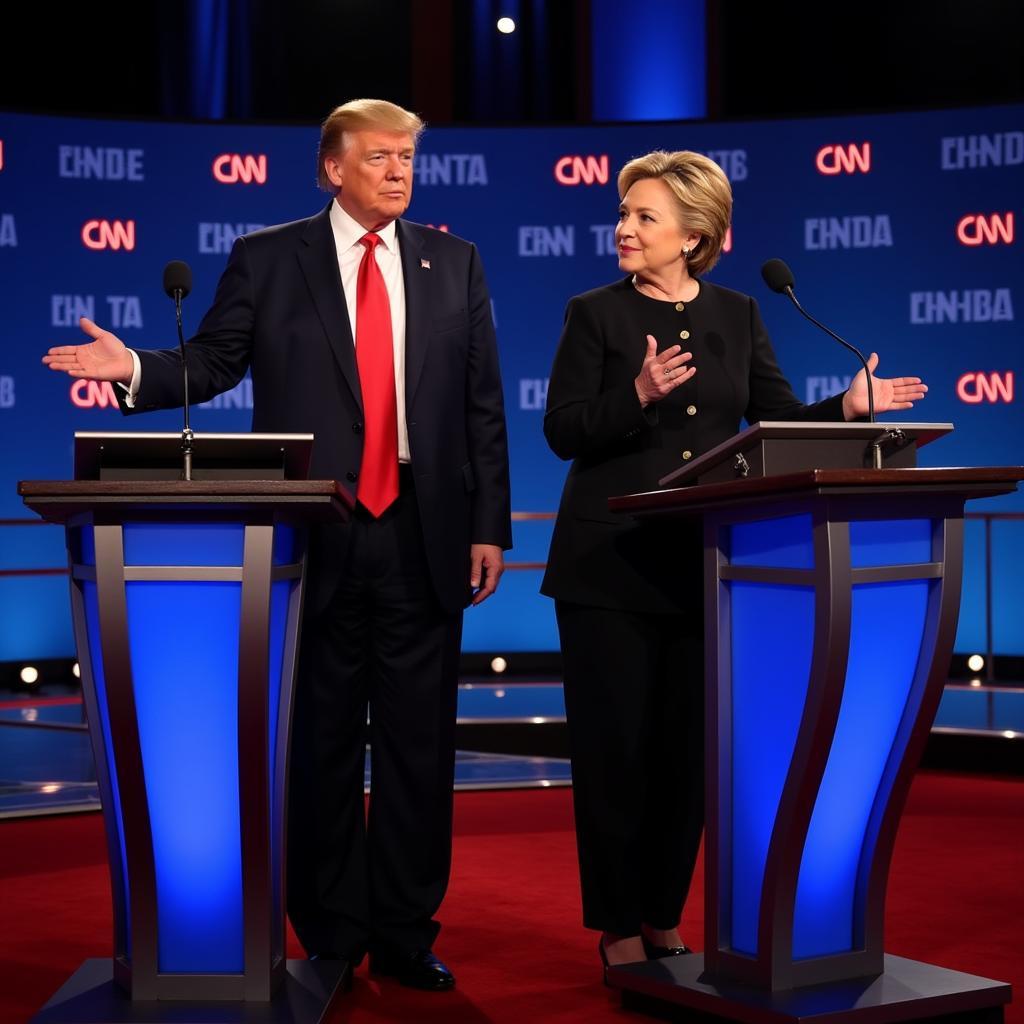The 2016 presidential election was one of the most contentious in recent history, with heated exchanges and controversial moments dominating the headlines. At the heart of this political storm were the three presidential debates between Donald Trump and Hillary Clinton, events that captivated the nation and provided a platform for both candidates to articulate their visions for America.
The First Debate: Setting the Stage
The first debate, held on September 26, 2016, at Hofstra University in New York, set the tone for the campaign’s final stretch. It was a highly anticipated event, drawing a record-breaking television audience eager to witness the clash between these two political heavyweights.
Key moments included:
- Clinton’s criticisms of Trump’s business record: Clinton went on the offensive early, questioning Trump’s business acumen and highlighting past bankruptcies.
- Trump’s defense of his temperament: Trump faced scrutiny over his temperament and fitness for office, defending his impulsive nature as a strength.
- The “birther” controversy: The issue of President Obama’s birthplace, fueled by Trump’s past statements, resurfaced, adding to the debate’s charged atmosphere.
The Second Debate: A Town Hall Showdown
The second debate, a town hall format held on October 9, 2016, at Washington University in St. Louis, provided a more personal and interactive setting. This format allowed voters to directly engage with the candidates, posing questions on a range of issues.
Highlights included:
- Trump’s “locker room talk” comments: A recently released tape of Trump making lewd comments about women cast a shadow over the debate, forcing him to address the controversy directly.
- Clinton’s email scandal: Clinton faced renewed questions about her use of a private email server while Secretary of State, a topic that had dogged her campaign.
- Healthcare and economic policy: Both candidates presented contrasting visions for healthcare reform and economic growth, highlighting key policy differences.
The Third and Final Debate: A Last Chance to Convince
The third and final debate, held on October 19, 2016, at the University of Nevada, Las Vegas, offered a last opportunity for Clinton and Trump to make their case to the American people.
Memorable moments included:
- Trump’s refusal to say he would accept the election results: In an unprecedented move, Trump refused to commit to accepting the outcome of the election, raising concerns about the peaceful transfer of power.
- Clinton’s focus on national unity: Clinton emphasized the need for national unity and healing following a divisive campaign, appealing to voters seeking a more experienced and steady hand.
- Foreign policy takes center stage: The candidates clashed on issues of foreign policy, including the Syrian Civil War, Russia’s role in the world, and trade agreements.
The Aftermath and Legacy of the Debates
The 2016 presidential debates provided a glimpse into the stark choices facing American voters. While Clinton emphasized experience, policy expertise, and a commitment to traditional American values, Trump presented himself as a political outsider willing to shake up the status quo.
Ultimately, the debates reflected the deep divisions within American society that fueled Trump’s unexpected victory. They served as a reminder of the power of rhetoric, the importance of voter engagement, and the enduring challenges facing American democracy.
